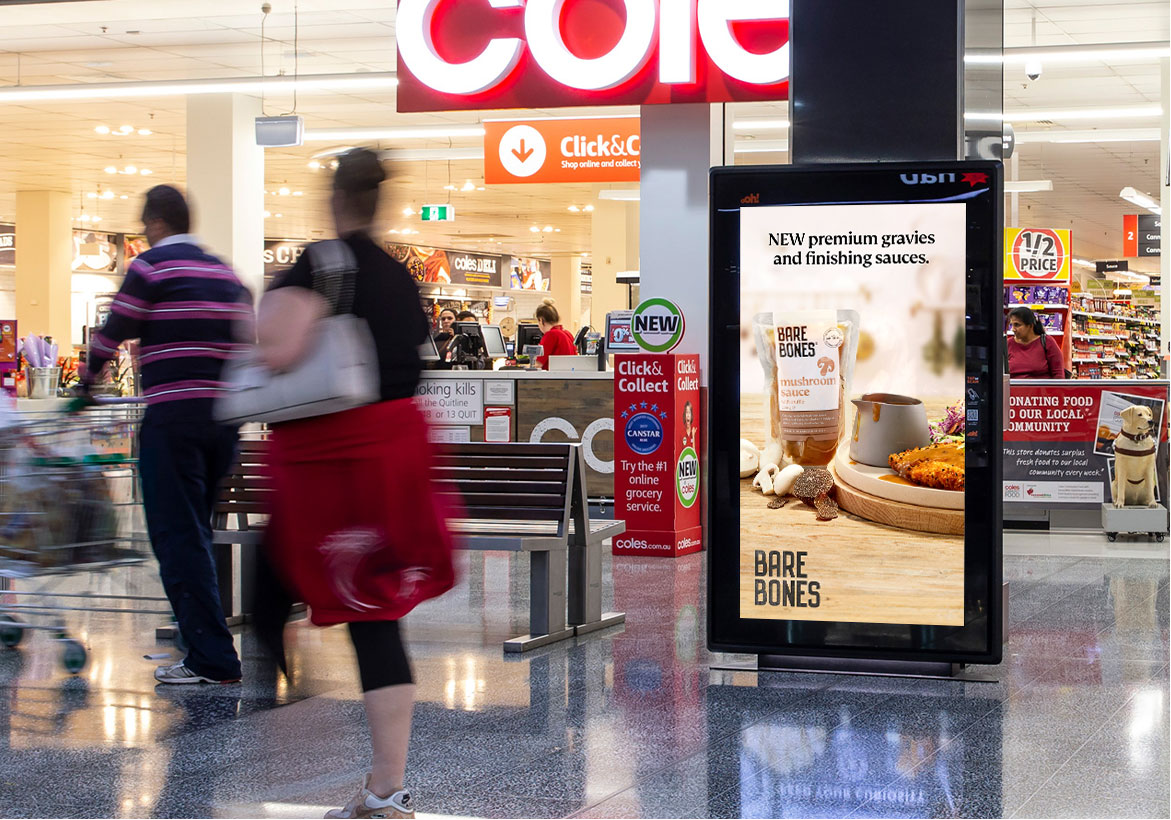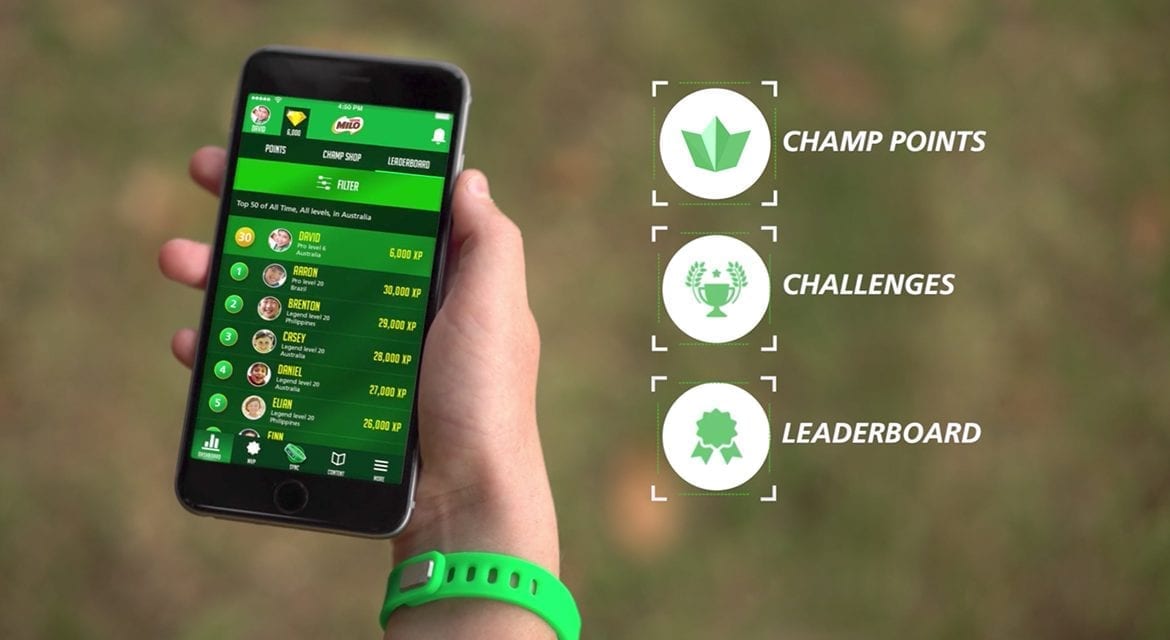FMCG Brands: How To Maximise The Impact of Brand Campaigns
For brands in the fast-moving consumer goods (FMCG) market, the need to set themselves apart from the competition has increased with more direct to consumer brands circumventing what was once an industry that could rely on distribution for growth.
Branding is a highly efficient method for achieving this goal. There will be greater competition than ever before in the fast moving consumer goods business since, according Garner, sales will reach 15,361.8 billion globally.
One method of cutting through is via impactful brand campaigns that engage and resonate with consumers. A well-executed brand campaign can lead to increased brand awareness, customer loyalty, and ultimately drive sales. In this article, we will explore the key strategies and trends that can help FMCG brands maximise the impact of their brand campaigns.
Understanding FMCG branding and the role of brand campaigns
First, let’s examine why branding is so crucial for fast-moving consumer goods (FMCG) firms. Companies that want to succeed in today’s competitive marketplaces need a solid branding strategy.
Branding is extremely important for companies competing in crowded markets, in fact according to Mckinsey, FMCG companies that utilise a quality branding strategy experienced growth and increased revenue roughly 25% more than companies that didn’t focus their efforts in branding.
In other words you can’t afford to stay stagnant. You need to grow your customer base and brand awareness on an ongoing basis to compete within the FMCG market.
FMCG brand campaigns are marketing initiatives designed to promote, differentiate, and ultimately sell consumer goods that are frequently purchased and consumed. These campaigns play a pivotal role in building brand equity and creating a strong emotional connection with consumers. To effectively maximise the impact of FMCG brand campaigns, it is important to understand their key characteristics and the role they play in a brand’s overall marketing strategy.
FMCG brand campaigns are not just about selling products; they are about creating a lasting impression in the minds of consumers. These campaigns go beyond traditional advertising and aim to engage and connect with consumers on a deeper level. By telling compelling stories, using humour, and appealing to emotions, FMCG brand campaigns create a memorable brand experience that resonates with consumers long after the campaign is over.
One key characteristic of FMCG brand campaigns is their short lifespan. Unlike other marketing initiatives that may run for months or even years, FMCG brand campaigns are designed to create immediate impact. They are often time-sensitive and rely on high-frequency messaging to gain top-of-mind awareness among consumers. By saturating various media channels with their messages, FMCG brands aim to ensure that consumers cannot escape their campaign, increasing the chances of brand recall and purchase.
Another characteristic of FMCG brand campaigns is their focus on differentiation. In a highly competitive market, FMCG brands need to stand out from the crowd and offer something unique to consumers. Brand campaigns provide an opportunity for FMCG brands to showcase their value propositions and highlight what sets them apart from their competitors. Whether it’s through innovative product features, sustainable practices, or a strong brand purpose, FMCG brand campaigns help brands differentiate themselves and attract consumers who align with their values.
Key Characteristics of FMCG Brand Campaigns
FMCG brand campaigns typically have a short lifespan and are focused on creating immediate impact. They are characterised by high-frequency messaging, aiming to gain top-of-mind awareness among consumers. These campaigns often leverage storytelling, humour, and emotional appeals to create a memorable and relatable brand experience.
Storytelling is a powerful tool used in FMCG brand campaigns to captivate consumers’ attention and create a connection with the brand. By weaving narratives that resonate with their target audience, FMCG brands can evoke emotions, build trust, and establish a sense of authenticity. Whether it’s a heartwarming story about a family coming together over a meal or a humorous tale that brings a smile to consumers’ faces, storytelling adds depth and personality to FMCG brand campaigns.
Humour is another key element often incorporated into FMCG brand campaigns. Laughter is a universal language that can break down barriers and create a positive association with a brand. By using clever and witty humour, FMCG brands can make their campaigns more memorable and shareable. A funny commercial or a humorous social media post can go viral, generating buss and increasing brand visibility.
Emotional appeals are also commonly used in FMCG brand campaigns to create a strong emotional connection with consumers. Whether it’s nostalgia, happiness, or a sense of belonging, tapping into consumers’ emotions can leave a lasting impact. FMCG brands often evoke emotions by showcasing real-life situations, relatable characters, or heartwarming moments. By triggering emotions, FMCG brand campaigns can create a bond between the brand and the consumer, leading to increased brand loyalty and advocacy.
The Role of FMCG Brand Campaigns in Marketing Strategy
FMCG brand campaigns are an integral part of a brand’s marketing strategy. They allow brands to showcase their unique value propositions, build brand equity, and differentiate themselves from competitors. Successful brand campaigns can help FMCG brands position themselves as industry leaders and drive customer loyalty.
Brand campaigns provide FMCG brands with an opportunity to communicate their brand story and values to consumers. By aligning their campaigns with their overall brand positioning, FMCG brands can reinforce their unique selling points and create a consistent brand image. This consistency helps consumers recognise and trust the brand, leading to increased brand equity and preference.
Furthermore, FMCG brand campaigns can help brands establish themselves as industry leaders. By consistently delivering impactful and memorable campaigns, FMCG brands can become synonymous with excellence in their respective categories. This positioning not only attracts new customers but also fosters loyalty among existing ones, as consumers associate the brand with quality and innovation.
In conclusion, FMCG brand campaigns are more than just marketing initiatives; they are powerful tools for building brand equity and establishing emotional connections with consumers. By leveraging storytelling, humour, and emotional appeals, FMCG brands can create memorable brand experiences that differentiate themselves from competitors. These campaigns play a crucial role in a brand’s overall marketing strategy, helping them showcase their unique value propositions and drive customer loyalty.
Strategies to Maximise FMCG Brand Campaign Impact
Now that we understand the importance of FMCG brand campaigns, let’s explore some strategies that can help maximise their impact.
When it comes to FMCG brand campaigns, there are several key strategies that can be employed to ensure maximum impact and effectiveness. These strategies not only help in reaching the target audience but also in creating a lasting impression on consumers.
Leveraging Consumer Insights for Effective Campaigns
One of the key factors in creating impactful FMCG brand campaigns is understanding the target audience. By leveraging consumer insights, brands can tailor their messaging, tone, and creative elements to resonate with their target market.
Conducting market research is an essential step in gaining a deep understanding of consumer preferences, needs, and behaviours. This research can involve surveys, focus groups, and data analysis to uncover valuable insights. By analysing consumer data, brands can identify trends, preferences, and patterns that can inform their campaign strategies.
In addition to traditional market research, monitoring social media trends can provide real-time insights into consumer sentiment and preferences. Social media platforms offer a wealth of information about consumer opinions, interests, and behaviours. By keeping a close eye on trending topics, hashtags, and conversations, brands can stay ahead of the curve and align their campaigns with the latest consumer trends.
Utilising Digital Platforms for FMCG Campaigns
In today’s digital age, FMCG brands have a plethora of opportunities to reach and engage with their target audience. Utilising digital platforms such as social media, influencers, and online advertising can significantly amplify the reach and impact of brand campaigns.
Social media platforms, such as Facebook, Instagram, and Twitter, provide a direct line of communication between brands and consumers. By creating engaging content and leveraging the power of social media algorithms, brands can increase their visibility and connect with their target audience on a personal level.
Influencer marketing has also emerged as a powerful tool for FMCG brand campaigns. Collaborating with influencers who have a strong following and influence in the target market can help brands tap into a wider audience and build credibility. Influencers can create authentic content that resonates with their followers, leading to increased brand awareness and trust.
Online advertising, including display ads, search engine marketing, and video ads, offers precise targeting options to reach specific demographics. Brands can leverage data-driven insights to deliver personalised messages to their target audience, increasing the chances of conversion and brand loyalty.
Moreover, digital platforms provide the opportunity to create interactive content that engages consumers in a meaningful way. Interactive quizzes, polls, and contests can not only capture attention but also encourage active participation, resulting in a more memorable and impactful brand campaign.
Strategy is figuring out what not to do
A well-thought-out strategy is essential for every brand’s success. A long-term branding strategy will pay dividends in the long run.
A successful branding strategy requires a detailed plan and when you invest in a long-term branding plan, you will set yourself up for success down the road.
According to Les Binnet, “if you want long-term growth, what you’ve got to do is change people’s minds in some way. You’ve got to build up memory structures that will bias their behaviour into the future, and that’s a much more difficult and long-term job, because it involves training people’s responses in such a way that you not only influence behaviour now, but you also influence behaviour tomorrow, next week, next month, next year, and on into the future.”
As part of the plan, make sure you establish your brand personality and determine important things like your product name, logo, website, product packaging, and website content that matches your personality.

Gain Consumer Trust & Develop Brand Loyalty
Customers are more likely to stick with your business if you reward them for making a purchase with enticing discounts after they’ve made a particular number of purchases. Maintaining open lines of communication with clients is essential for delivering satisfying service.
Brand awareness will increase your overall exposure, but you also need to establish brand loyalty so that your new customers become repeat customers and possibly even recommend you to their friends.
You can establish brand loyalty by offering a rewards program. For your rewards program to work well, you need to provide great deals after the customer spends a certain amount.
Finally, you should communicate with customers in a variety of ways to guarantee a good experience and make sure you take advantage of personalisation as personalised communications can improve customer satisfaction by a whooping 604%.
Telling Your Story in a Relevant Way
Every business has a story, and you want to tell your story to associate it with your brand.
Collect the stories you want to tell and perfect the way you tell them. Then, teach the stories to your employees and communicate the stories to your customers on a variety of platforms both in store and online.
Keep in mind that unusual details help customers connect with you in a visceral way.

Use Analytics to Stay Ahead of the Game
Understand the benefits that big data brings to your brand strategy.
Use analytic tools to learn more about your customers and use this information to create personalised marketing campaigns that appeal to your target audience.
Use data to find out what strategies are working (and which ones aren’t).
Get used to checking your numbers on a regular basis and adjust your strategy accordingly every 3 – 6 months. Embrace change.
Integrate Branding & Product Development
Every element of your product packaging should match your brand. For example, if you offer a natural food product and include “environmentally friendly” as part of your brand personality, you probably don’t want to use packaging that can’t be recycled.
Use colours and images that match the rest of your branding. When people see the product in the store, they will get it if they recognize the logo from their social media feed or your website.

Be Agile
According to mckinsey. “In the consumer-goods sector, agile ways of working aren’t an all-or-nothing proposition. Success depends on knowing where and how to deploy them”
Don’t be afraid to change things up when you notice an area for improvement. You have a lot of competition out there in the FMCG industry and while your company isn’t reacting to change your competition is developing and launching new products.
Remember that the only constant is change so your messaging, offers and value propositions should change as well.
Measuring the Success of FMCG Brand Campaigns
Measuring the success of FMCG brand campaigns is crucial to understanding their impact and optimising future campaigns. By setting key performance indicators (KPIs) and analysing campaign analytics, brands can gain insights into the effectiveness of their campaigns and make data-driven decisions for continuous improvement.
Key Performance Indicators for FMCG Campaigns
Some common KPIs for FMCG brand campaigns include brand awareness, reach, engagement, customer acquisition, and sales uplift. By tracking these metrics, brands can evaluate the effectiveness of their campaigns and make adjustments to improve performance.
Interpreting Campaign Analytics for Continuous Improvement
Analysing campaign analytics provides valuable insights into consumer behaviour, preferences, and campaign performance. By interpreting these analytics, brands can understand what elements of their campaigns resonate with consumers and what areas need improvement. A continuous feedback loop, informed by analytics, allows brands to refine their campaign strategies and optimise future brand campaigns.
Future Trends in FMCG Brand Campaigns
As consumer preferences and technology continue to evolve, FMCG brand campaigns must adapt to stay relevant and impactful. Let’s explore two key future trends that will shape the future of FMCG brand campaigns.
The Rise of Personalisation in FMCG Campaigns
Personalisation is becoming increasingly important in FMCG brand campaigns. By leveraging consumer data and technology, brands can deliver personalised content and experiences that resonate with individual consumers. Personalised campaigns create a sense of exclusivity and make consumers feel understood and valued.
Sustainability and Ethical Considerations in Future Campaigns
Consumers are increasingly conscious of the environmental and ethical impact of their purchasing decisions. FMCG brands that incorporate sustainability and ethical considerations into their campaigns can align with consumer values and build a positive brand image. Future campaigns will focus on transparency, responsible sourcing, and eco-friendly practices to resonate with socially conscious consumers.
In conclusion, maximising the impact of FMCG brand campaigns requires a deep understanding of their key characteristics, leveraging consumer insights, utilising digital platforms, measuring campaign success, and staying ahead of future trends. By strategically implementing these strategies and adapting to evolving consumer expectations, FMCG brands can create brand campaigns that leave a lasting impact on their target audience.